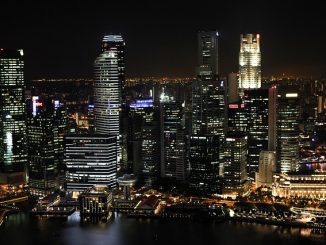
It seems obvious that a city should, today, become Smart, ie a digital city. But are we clear on the reasons for this evolution? How to make it understood by all citizens? How to organize it to create value? To answer these questions, let’s start by examining the benefits of digital technologies to understand when and where, in a city, these benefits can be revealed?
Could digital technology help a city to enter the 21st century and give it an image of modernity? Probably. But is it enough? Developing this image can have a temporary impact on voters, but cities are facing much more crucial issues in the eyes of citizens: economic development, contribution to the protection of the environment, security, ease of life, short transport time etc …
Would digital technology allow for finer operations? Undeniably! Acquiring data and processing them automatically makes it possible to process them more frequently and to monitor more precisely all the operations. Acquiring more data often comes up against the impossibility of collecting them differently than in an automated way, but also allows for finer management.
Decentralized systems management also requires more data to monitor more and more dispersed elements. Without digital applications, their development would be slowed down.
Digital enables more real-time management. Acquiring data automatically, processing it and, consequently, activating various equipment is the basis of digital applications, on the one hand, and real-time management, on the other.
The digital allows a development of transactions, linked to a contract between seller and buyer. Such a contract supposes to follow its correct implementation thus to acquire the data necessary for this follow-up. Digital applications therefore allow the extension of transactional relationships between numerous, distant actors and dealing with frequent or continuous transactions.
What, then, are energy issues in cities that require more real-time management, more transactional logic, decentralized system management or finer management than before? Clearly, what are the reasons, related to energy, to develop a Smart City?
There are some reasons to transform the city’s role vis-à-vis citizens:
Reduce the environmental impact
The development of distributed renewable energy sources, for example solar, is a highly contributive action to reduce CO2 emissions. It induces a decentralization of energy production, the management of which is facilitated by a capacity to monitor a large number of sources of power generation and by the emergence of local communities sharing their production on purely transactional relationships.
Improve the life experience in the city
In terms of use of the city, energy is often a vector of comfort: for example, thermal and lighting comfort in buildings, lighting comfort in public spaces. The improvement of this comfort requires a better, faster and more customized response to the various users of the city. More accurate, faster (real-time) systems will provide better answers.
Reduce transport times
Developing intermodality, that is to say transport systems encompassing different means of transport and transition points from one to another, sharing vehicles, decongesting a city by guiding the vehicles are actions with a high impact on transport times. They all require a finer and faster data management capability on more and more distributed systems.
Develop economic and innovation networks
In the field of energy, as in others, innovation and economic activity develop within distributed networks. These networks are now a source of revitalization of the activity of many cities.
But other reasons to develop a Smart City are related to the need for performance of the city:
Improve energy efficiency
It’s obvious: acting on our consumption means knowing it and UNDERSTANDING it. The keys to energy efficiency are therefore provided by the data, the way it is acquired and the form in which it is presented. There is evidence that real-time data has more influence on consumer actions; these data are all the more relevant because they come from many distributed sensors to provide the necessary precision for a relevant analysis.
Optimize the consumption of scarce resources
The most important is the water. Hot, dry countries are already facing this challenge, but we will all face it. Controlling production (always local), distribution (subject to high leakage rates) and consumption (now uncontrolled) of water is one of the most important issues for a city. The decentralization of the monitoring points, along the distribution networks, the need for real-time information are all factors of optimization of this supply chain.
Optimize operating costs
Have a remote control of the operating status of each light point in the public lighting instead of conducting verification rounds, monitor the state of operation of remote urban equipment rather than waiting for alerts from residents, monitor the filling status of dumpsters to optimize collections are all applications improving the service to citizens but also reducing the operating costs of the city. All these applications are not profitable today, but all will become it. The increasing complexity of city operation and management requires many savings to be able to assume the new costs at a constant budget level.
Given the huge increase in the urban population, most of the issues mentioned above are relevant in all cities. Local specificities and targeted objectives will condition the digital applications to be developed. But the evolution towards the Smart Cities seems from now on inevitable.
It is now necessary to identify precisely the objectives and to enter, with success, into an execution phase. Cities must have a clear strategy and a rigorous development process.
Recevez chaque trimestre les articles du blog: [sibwp_form id=2]




Leave a Reply